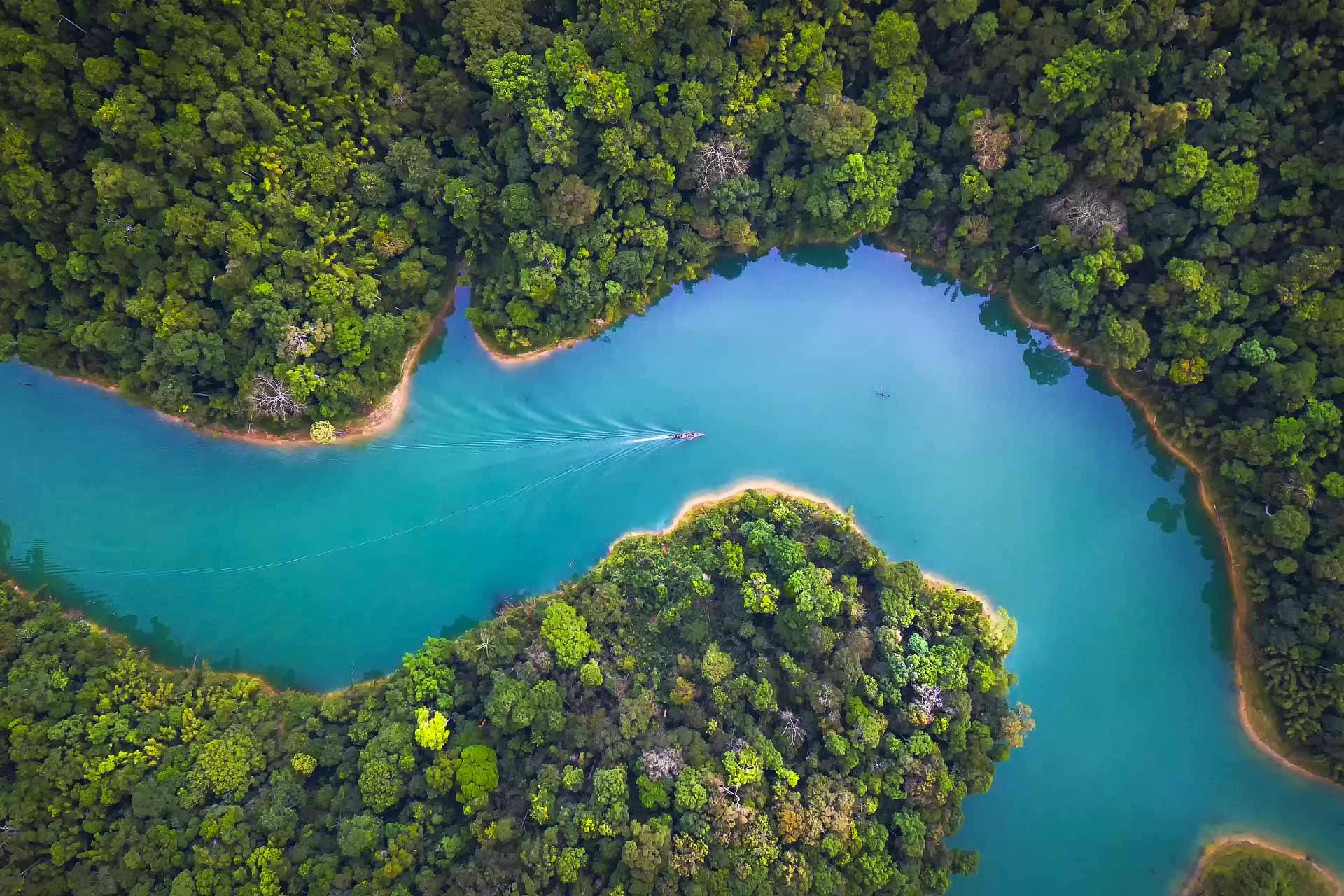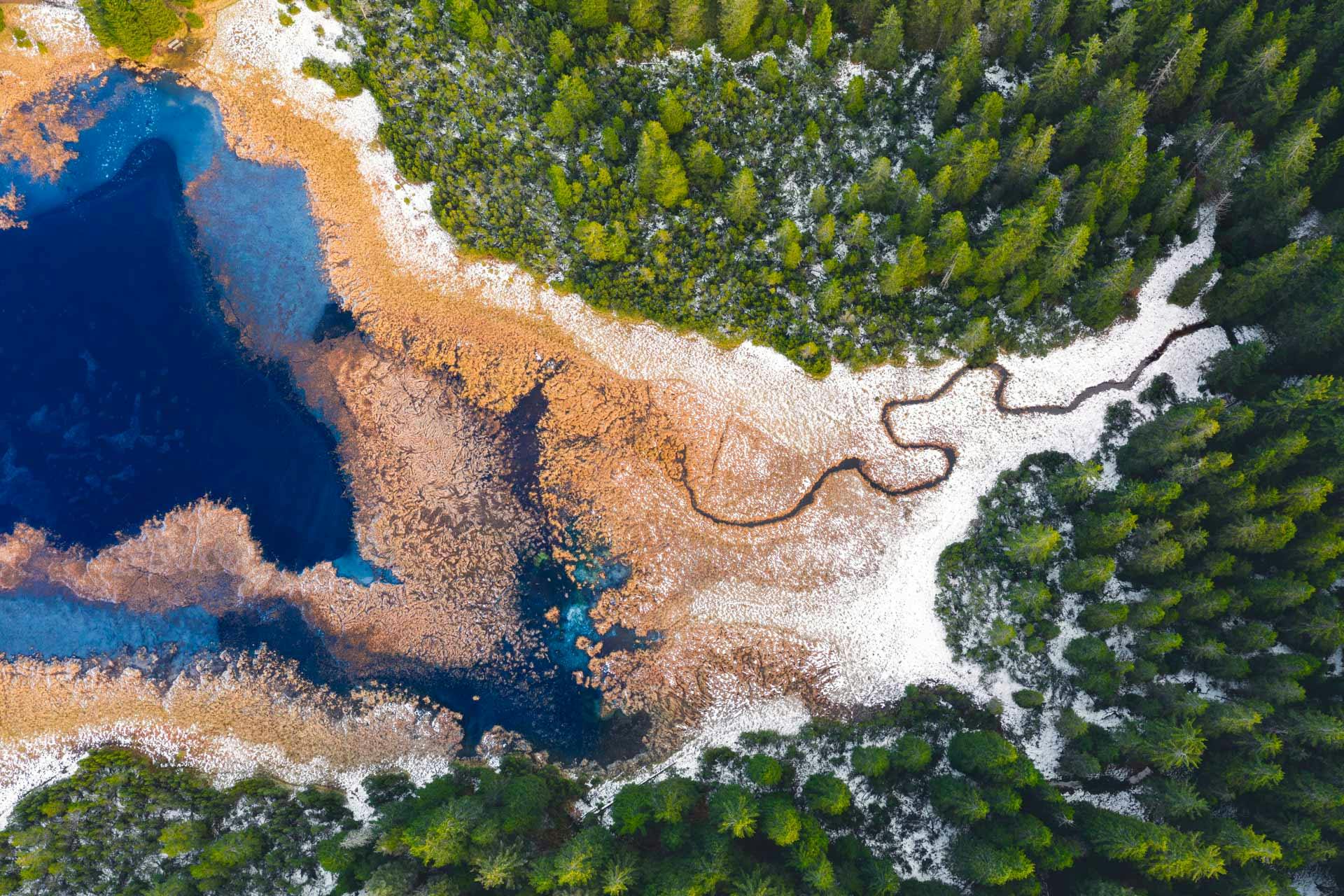
December 12, 2019
Biodiversity: 5 facts that change the way we do business
Why is biodiversity important to AXA? Nature provides us with essential goods and services; its decline has implications for society and our business.
4 minutes
Read key facts and figures from the latest publication from the AXA Research Fund: Biodiversity at Risk: preserving the natural world for our future.
$505 billion
In 2017 and 2018, economic losses from natural catastrophes together totaled more than $505 billion*. Less than half of these losses were insured.
Ecosystems, such as wetlands and coral reefs, help protect coastal areas against storm damage and flooding. By protecting natural capital, insurers can also protect local communities and businesses and, over time, reduce the impact of natural disaster-related claims.
Awareness levels have gone up significantly. Hurricane Katrina was a shock – hurricane Sandy was another shock. Since then, there has been huge interest in what we can do to reduce vulnerability. Nature is definitely part of that question – and it will have to be a bigger part of the answer. The insurance industry can help by recognizing how nature reduces risk, design products to protect it and encourage investment in its restoration.
Mark Way, Global Coastal Risk and Resilience Director, The Nature Conservancy.
60%
The Living Planet Index shows a decline of 60% in the population sizes of wildlife over the past four decades**; the index surveys the health of thousands of species and populations around the world.
As part of its overall strategy for biodiversity, AXA invests directly in natural ecosystems. In 2019, the Group announced the launch of a new ten-year ‘Climate and Biodiversity’ impact fund. It will invest up to €200 million for conservation of natural capital, resource efficiency and increasing the resilience of vulnerable communities.
We really want to drive capital to the heart of the biodiversity challenge, in order to protect ecosystems and better promote biodiversity – this is what we are doing with the Climate and Biodiversity impact fund.”
Shade Duffy, Director of Impact Management, AXA Investment Managers.


70%
Seventy percent of drugs used to treat cancer are natural or synthetic products inspired by nature***. In addition, some 60% of the world’s population rely on traditional medicine, many of which are based on plants and herbs.
The decline in the natural world has serious implications for our health: the poorer quality and variety of our diets due to the reduction of existing crops and a weaker capacity of natural ecosystems to provide us with fresh air and clean water and the reduced availability of natural resources for our medicine – all have the potential to negatively affect our health with higher ensuing costs for the insurance business.
$12 trillion
Implementing the UN SDGs by 2030 will cost an estimated $5-7 trillion. At the same time, achieving the goals could create $12 trillion in market opportunities and 380 million new jobs****.
Biodiversity is one of AXA’s key topics within AXA’s responsible investment approach, stemming from the essential role biodiversity plays for certain sectors and their potential impacts on nature itself, particularly food and agriculture, pharmaceuticals, mining and hydropower.
Among companies, there is a growing interest in the biodiversity topic as it connects social and environmental issues, attracting a growing interest within society as a whole. A responsible investor must address this issue and show support for the SDGs. It is especially critical that companies take into account their supply chains. If you look at retail and food companies, this is where most risks and opportunities occur.
Julien Foll, Senior Responsible Investment Analyst, AXA Investment Managers

We need more research and we have to work through both our insurance products and our investments to help companies adapt and make the transition to a more environmentally sustainable future.
Céline Soubranne, Chief Corporate Responsibility Officer, AXA Group
81%
More than 4 in 5 consumers feel strongly that companies should care for the environment – the figure rises to 85% among millennials*****.
Companies are increasingly recognizing the adverse impacts resulting from biodiversity decline (e.g. risks to their operations and supply chains, liability, regulatory, reputational and financial risks) and the opportunities (e.g. sustainable business models, cost savings and improved relations with stakeholders).
For a long time, the role of nature in combating climate change has been underestimated by society. That is now starting to shift. It is impossible to adequately tackle climate change without addressing biodiversity and ecosystem loss. Ultimately by conserving nature and restoring ecosystems we reduce vulnerability and increase resilience – the essence of our purpose as an insurer.
Suzanne Scatliffe, Corporate Social Responsibility Director, AXA XL
In the face of these challenges, AXA’s strategy operates on several fronts:
- Insurance: AXA works directly with customers on environmental risk – the Group provides coverage for companies’ liabilities, parametric solutions to the physical impacts of climate change, and offers advice on risk mitigation. AXA is now also looking to develop new, innovative products which include blue carbon credits and insurance for natural systems such as coral reefs and mangroves.
- Investment: Biodiversity will be increasingly built into AXA’s approach to responsible investment, via the companies the Group invests in and through the launch of a €200 million impact fund for climate and biodiversity towards projects that protect natural habitats and deliver economic and social benefits to local communities.
- Research: AXA is committed to scientific research through its scientific philanthropy initiative, the AXA Research Fund, and has been supporting over 60 projects related to biodiversity, for a total of €10 million. They are part of more than 200 projects dedicated to tackle the major challenges of climate and environment.
- Corporate responsibility: The fight against biodiversity loss will need broad action and requires stronger collaboration between the private and public sectors, as well as NGOs, which often have the expertise and local knowledge necessary for effective policy. In May 2019, AXA issued a series of recommendations jointly with WWF France and urged governments to set clear priorities. This has resulted in a G7 charter on intensified efforts to respond to the biodiversity loss challenge.
Biodiversity loss has clear connections with AXA’s business. What is happening is a wake-up call. Everyone knows the situation is serious and it is now time to come up with solutions. We need more research and we have to work through both our insurance products and our investments to help companies adapt and make the transition to a more environmentally sustainable future.
Céline Soubranne, Chief Corporate Responsibility Officer, AXA Group
Find out more in Biodiversity at Risk, the latest in the AXA Research Guide Series from the AXA Research Fund.



